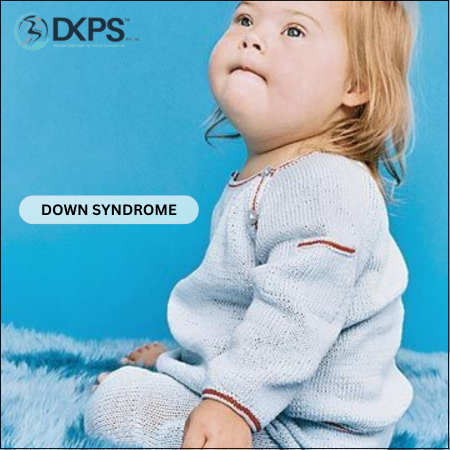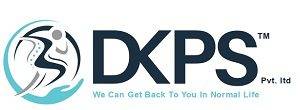- Home
- About Us
- DKPS Dealing
- BLOG
- Delhi NCR
- Delhi
- Physiotherapy at Home Near Me | Physiotherapist in South Delhi
- Best Chiropractor in Delhi
- Physiotherapist in Delhi
- Cupping Therapy in Delhi
- Home Nursing Services in Delhi
- Needle Therapy for Back Pain
- Sports Injury Physiotherapy
- Best Physiotherapist Visit at Home in Rohini Sector 24
- Physiotherapy at Home In Rohini Sector 9 |
- Physiotherapist in Pitampura | Physiotherapy at Home in Pitampura
- Physiotherapy at home in Rohini sector 29
- Physiotherapist in Paschim Vihar
- Physio home visit | Home Visit Physiotherapy |
- Physiotherapist in Saket | Best Physiotherapist in Saket |
- Physiotherapist In Janakpuri | Best Physiotherapist in Janakpuri |
- Best Physiotherapist in Punjabi Bagh | Punjabi Bagh Physiotherapist |
- Best Physiotherapist Service at Home in Dwarka, Delhi
- Best Physiotherapist in Chandigarh at Home Visit
- Faridabad
- Gurugram
- Noida
- Best Physiotherapy Gorakhpur
- Best Physiotherapist in Lucknow | Physiotherapist in Lucknow near me |
- Delhi
- Mumbai
- Delhi NCR
- Department
- Doctors
- Gallery
- Packages
- Contact Us
- Home
- About Us
- DKPS Dealing
- BLOG
- Delhi NCR
- Delhi
- Physiotherapy at Home Near Me | Physiotherapist in South Delhi
- Best Chiropractor in Delhi
- Physiotherapist in Delhi
- Cupping Therapy in Delhi
- Home Nursing Services in Delhi
- Needle Therapy for Back Pain
- Sports Injury Physiotherapy
- Best Physiotherapist Visit at Home in Rohini Sector 24
- Physiotherapy at Home In Rohini Sector 9 |
- Physiotherapist in Pitampura | Physiotherapy at Home in Pitampura
- Physiotherapy at home in Rohini sector 29
- Physiotherapist in Paschim Vihar
- Physio home visit | Home Visit Physiotherapy |
- Physiotherapist in Saket | Best Physiotherapist in Saket |
- Physiotherapist In Janakpuri | Best Physiotherapist in Janakpuri |
- Best Physiotherapist in Punjabi Bagh | Punjabi Bagh Physiotherapist |
- Best Physiotherapist Service at Home in Dwarka, Delhi
- Best Physiotherapist in Chandigarh at Home Visit
- Faridabad
- Gurugram
- Noida
- Best Physiotherapy Gorakhpur
- Best Physiotherapist in Lucknow | Physiotherapist in Lucknow near me |
- Delhi
- Mumbai
- Delhi NCR
- Department
- Doctors
- Gallery
- Packages
- Contact Us
Down Syndrome
- Home
- Down Syndrome

Down Syndrome :-
Understanding the Condition and Embracing Inclusion Discover what Down syndrome is and gain a comprehensive understanding of this genetic condition. Explore the symptoms, causes, and available support for individuals with Down syndrome. Join us in promoting inclusion and breaking down barriers. Read on to learn more about Down syndrome.
Introduction: Welcome to our comprehensive guide on Down syndrome. In this article, we will delve into the world of Down syndrome, providing you with an in-depth understanding of the condition, its causes, symptoms, available support, and the importance of inclusion. Whether you are a parent, a caregiver, an educator, or simply interested in learning more, this article will equip you with the knowledge you need to embrace diversity and create a more inclusive society. Let’s embark on this journey of understanding and compassion together.
What Is Down Syndrome :
Down syndrome, also known as trisomy 21, is a genetic condition characterized by the presence of an extra copy of chromosome 21. This additional genetic material alters the course of development, resulting in various physical and intellectual differences. Individuals with Down syndrome typically have distinct facial features, and cognitive delays, and may experience certain medical conditions. However, it is essential to recognize that each person with Down syndrome is unique and has their own strengths, abilities, and personality traits.
Symptoms of Down Syndrome :
Symptoms of This Diseases can vary from to Person. While some individuals may have mild symptoms, others may experience more pronounced effects. Common physical characteristics associated with Down syndrome include:
· Almond-shaped eyes
· Flat facial profile
· Small ears
· A single crease across the palm of the hand
· In addition to physical traits, individuals with Down syndrome may also exhibit cognitive and developmental delays. These delays can affect speech and language development, motor skills, and intellectual abilities. However, with early intervention, therapy, and support, individuals with Down syndrome can make significant progress and lead fulfilling lives.
Causes of Down Syndrome :
Down syndrome occurs as a result of a random error in cell division during the formation of reproductive cells. This error leads to the presence of an extra copy of chromosome 21. The exact cause of this error is still unknown, and it is not related to any actions or behaviors of the parents. It is a naturally occurring genetic variation that can affect anyone, regardless of their race, ethnicity, or socioeconomic background.
Supporting Individuals with Down Syndrome :
Creating a supportive and inclusive environment is crucial for individuals with Down syndrome to thrive. It is essential to focus on their strengths, abilities, and potential rather than solely on their limitations. Here are some ways to provide support:
Early Intervention Programs:
Early intervention services, such as speech therapy, occupational therapy, and physical therapy, can help address developmental delays and enhance overall growth.
Inclusive Education:
Inclusive education ensures that individuals with Down syndrome have access to quality education alongside their peers. This approach promotes social interaction, academic development, and self-esteem.
Supportive Healthcare:
Regular medical check-ups and specialized healthcare providers can address the specific medical needs of individuals with Down syndrome, ensuring their well-being and managing any associated health conditions.
Community Engagement:
Encourage community involvement and inclusion by promoting awareness and organizing events that celebrate diversity. By embracing individuals with Down syndrome, we can foster a more accepting and inclusive society.
FAQs about Down Syndrome:
Q: Can Down syndrome be detected during pregnancy?
A: Yes, Down syndrome can be detected prenatally through various screening and diagnostic tests. These tests help expectant parents make informed decisions and prepare for the potential needs of their child
Q: What is the life expectancy for individuals with Down syndrome?
A: The life expectancy for individuals with Down syndrome has increased significantly over the years. On average, individuals with Down syndrome can live into their 60s and beyond with proper medical care, a healthy lifestyle, and a supportive environment.
Q: Are individuals with Down syndrome capable of attending mainstream schools?
A: Absolutely! Inclusion in mainstream schools has become more common and beneficial for individuals with Down syndrome. With appropriate support and accommodations, they can thrive academically and socially alongside their peers.
Q: Can individuals with Down syndrome lead independent lives?
A: Yes, individuals with Down syndrome can lead independent lives to varying degrees. With proper education, skill development, and support, they can acquire life skills, pursue employment opportunities, and live fulfilling lives.
Q: How can society promote inclusion and acceptance of individuals with Down syndrome?
A: Society can promote inclusion and acceptance by challenging stereotypes, fostering educational and employment opportunities, and encouraging open dialogue and understanding. Embracing diversity enriches our communities and creates a more compassionate world.
Q: How can I support a family who has a child with Down syndrome?
A: Supporting a family with a child who has Down syndrome involves providing emotional support, offering assistance with caregiving responsibilities, and treating the child with dignity and respect. Educate yourself about Down syndrome to better understand their unique needs and experiences.
Conclusion:
In conclusion, Down syndrome is a genetic condition that affects individuals in various ways. By understanding and embracing the diversity of abilities and strengths among people with Down syndrome, we can break down barriers and foster an inclusive society. Let us celebrate the unique qualities and contributions of individuals with Down syndrome and work together to create a world where everyone is valued and included.
Additional Links
For More Articles
DKPS Physiotherapy services at Home
DWARKA | PASCHIM VIHAR | PEERAGARHI | VIKASPURI | PITAMPURA | KOHAT ENCLAVE | RANI BAGH | ROHINI | JANAKPURI | MANGOLPURI | PUNJABI BAGH | NANGLOI | BAHADURGARH | NOIDA | GREATER NOIDA| GHAZIABAD | GURGAON | FARIDABAD | MUMBAI | GORAKHPUR | LUCKNOW | CHANDIGARH |
